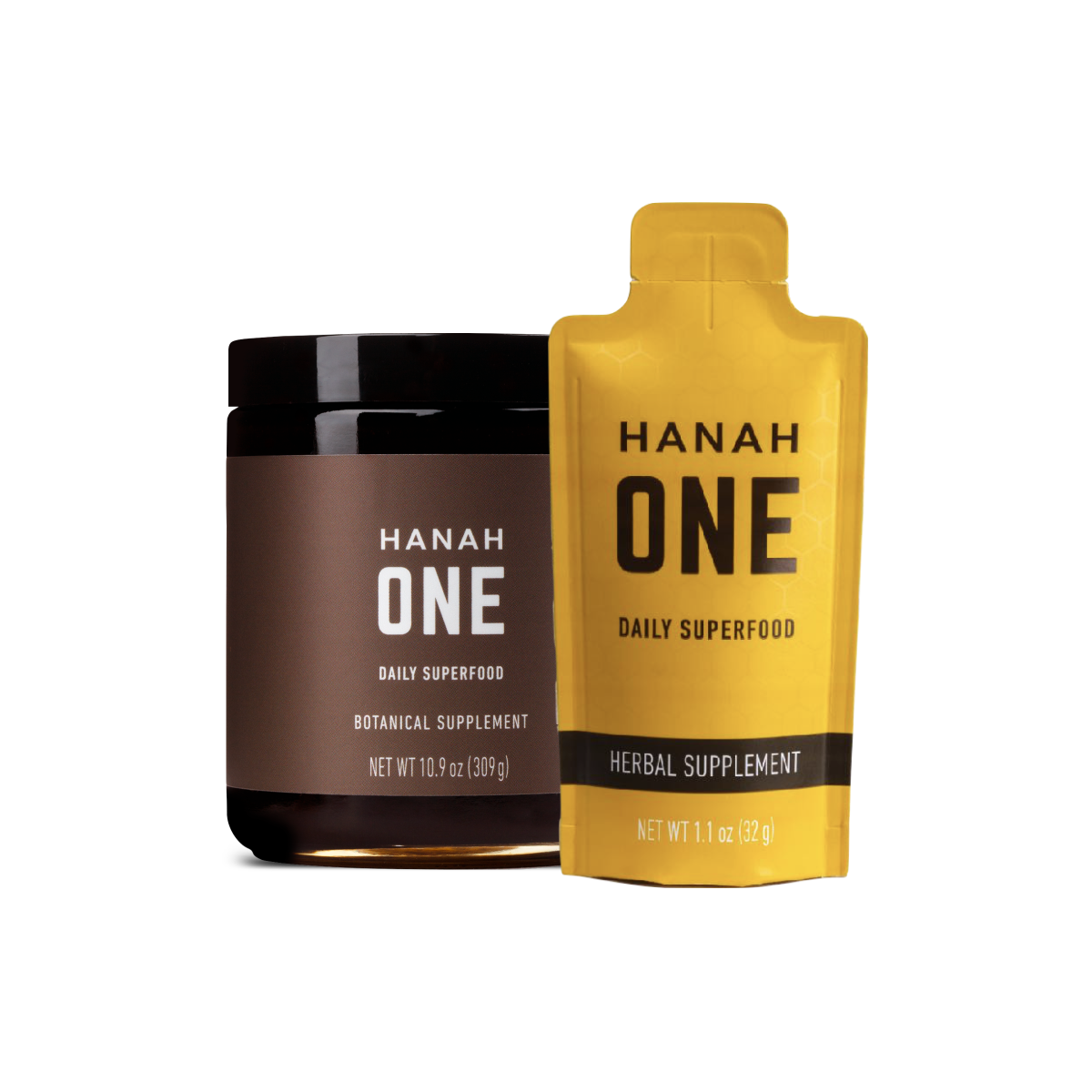Not all ghee is created equal: Why diet and breed matter (Part 2 of 2)
The second installment of our ghee series
In the first part of our series on ghee, we explained the history and benefits of this ancient superfood that Indian culture calls “liquid gold.” Our second part will cover why it’s so important to choose your ghee carefully. Different ghees vary not only in flavor, but in quality too. There are several factors to consider, including the cow’s diet, where they live and even the breed.
We are excited to share the research and findings we’ve learned over the last several years of product development. As we mentioned in Part One, ghee is a key ingredient in our flagship product HANAH ONE. We have since launched HANAH Vechur Ghee, our very own line of artisanal grass-fed ghee. This product is handmade in the Ayurvedic tradition in small batches in Kerala, India, from the highly-medicinal milk of the sacred Vechur cow.

Holy cow: the Vechur
In India, ghee is the most precious substance provided by the most sacred animal on earth, the cow. Cows are treated with great respect, and the dwarf Vechur cow, which is native only to the region of Kerala, is one of the most revered breeds of all. We truly believe we have the most special, nourishing and delicious ghee on the planet thanks to a lot of hard work on our supply chain and our incredible partners in India.
Diet matters: Grass-fed cows are superior in every way
We all have heard about the importance of sourcing organic, grass-fed, free range products. What the cows consume truly matters to the quality of the milk and ghee they produce.
Not only are grass-fed cows healthier and happier, but their milk is more nutritious than their corn-fed counterparts. Grass-fed dairy contain loads more beta-carotene and omega-3 fatty acids, which may prevent dementia as well as heart disease. They’re also high in conjugated lineoleic acid (CLA), a healthy omega-6 that’s been shown to lessen symptoms of inflammatory disorders such as allergies and asthma. Plus, grass-fed really tells you something about the way the cattle is raised—both their diet and their living conditions.
HANAH’s ghee is even more special because of the Vechur cow’s unique diet. These tiny cows spend their days soaking in the sunlight and grazing mineral-rich grasses and herbs where they grow naturally. Vechur literally eat herbs and because of their small size, are able to uniquely synthesize the potent nutrients of their diet, producing a milk that is well known for its highly medicinal content. To ensure nutrient density, they also feed on coconut oil cakes, rice water and rice soup. Their milk has all the immunity building factors and the result is a highly nutritious ghee, naturally packed with omega-3 and omega-9 essential fatty acids, vitamins A, D, E and K.
What’s more is the rich flavors of the ghee vary depending on the flora that is in season and the diet that the Vechur consumes when it is milked. You will notice that every batch of HANAH Vechur Ghee has its own unique taste, similar to the terroir of wine with new flavors and notes being highlighted from season to season.
A word about organic and labels
Grass-fed does not necessarily mean organic or hormone- and antibiotic-free, according to the USDA. The addition of an organic label can certainly help, but that certification has lost a lot of credit in the eyes of the consumer and industry observers since the National Organic Program (NOP) was established in 2000. Many consumers think organic means humanely raised (it does not) and unfortunately, the USDA just reversed a rule this month that would have set new standards for animal welfare under the organic label.
Consumers pay roughly twice the price for USDA organic. There are frequent cases of fraudulent claims and shady advertising practices from farms claiming to be organic or grass fed. Unfortunately, USDA’s food safety and inspection service doesn’t have the resources to inspect all farms, so it essentially works on the honor system. Many industry observers are critical of the USDA for lax enforcement of NOP standards.
In India, HANAH supports the small local farms in Kerala that use traditional Ayurvedic agricultural practices, which are based on following the rhythms of nature and maintaining a deep respect and understanding of the earth. That means no chemicals, GMOs, hormones, pesticides or anything artificial. Like all HANAH products, our Vechur Ghee is triple tested for purity, safety and potency.
Bottom line when making your selection—do your research and purchase from suppliers and brands with transparent business practices you know and trust, whether it’s your local farmer’s market, co-op or HANAH.
The debate between A1 and A2 milk proteins
It is important to focus not only on the diet of the cow, but also the type of breed producing the milk. You may have heard of the two types of proteins found in different cow milk varieties: A1 and A2 beta-casein; the debate between the two goes back to the late ‘80s.
A1 beta casein is found in several cow breeds around the world, including Friesian, Ayrshire and Holstein, the primary source of dairy in the U.S. It is a genetic mutation that became dominant through years of cross breeding. Studies have shown that A1 beta-casein is harder to digest and is linked to increased inflammation in the body, as well as the likelihood of illness and chronic conditions. This is because when the milk is digested, it releases a peptide BCM7, that can cause negative health effects.
A2 beta-casein is found in native cow breeds in India (such as our beloved Vechur cow), Asia and Africa and is said to be easier to digest and the preferred choice for health reasons. Studies have found that people who drank A2 milk had fewer cardiovascular issues and a lower risk of diabetes. In addition, A2-rich milk contains more vitamin E, carotenoids and minerals like zinc.
Limited supply + advocacy
According to the Guinness Book of World Records, the Vechur is the smallest cow in the world. They average about 90 cm in height and weigh around 130 kg, yielding up to three litres of milk a day. Compare that to the Holstein, which is 146 cm in height, weighs an average of 600 kg and produces 34 liters of milk a day.
Today, there are only a few hundred Vechur cows left. They are native to Kerala, and because they produce small amounts of milk, local farmers were favoring the larger continental cow breeds for many years. But fortunately that is changing, and HANAH has been a big advocate for preservation of the breed, creating a new market for Vechur ghee and working with local organizations that are spearheading conservation efforts.
By sharing the tremendous health benefits and bringing Vechur ghee to the West, HANAH has helped create a resurgence in the demand for this special cow. HANAH also pays beyond market value to local farmers to ensure they see the value in keeping the breed thriving.
Due to the limited supply of Vechur ghee available, we are only able to produce 100 jars of this golden superfood each month. Through your purchase, you are helping to support preservation efforts of this magical cow while experiencing all the delicious health benefits.
How to use it
There are so many ways to add ghee to your diet (other than cooking with it). You can use it for baking, drizzling on top of steamed veggies, or as a popcorn topping. You can even stir it into a warm mug of nourishing bone broth. One of our favorite HANAH recipes with ghee is to blend it into your coffee.
Check out part one of the HANAH Vechur Ghee series. Also, take a peak at the reasons behind why not all ghee is created equal here.









Leave a comment
This site is protected by hCaptcha and the hCaptcha Privacy Policy and Terms of Service apply.